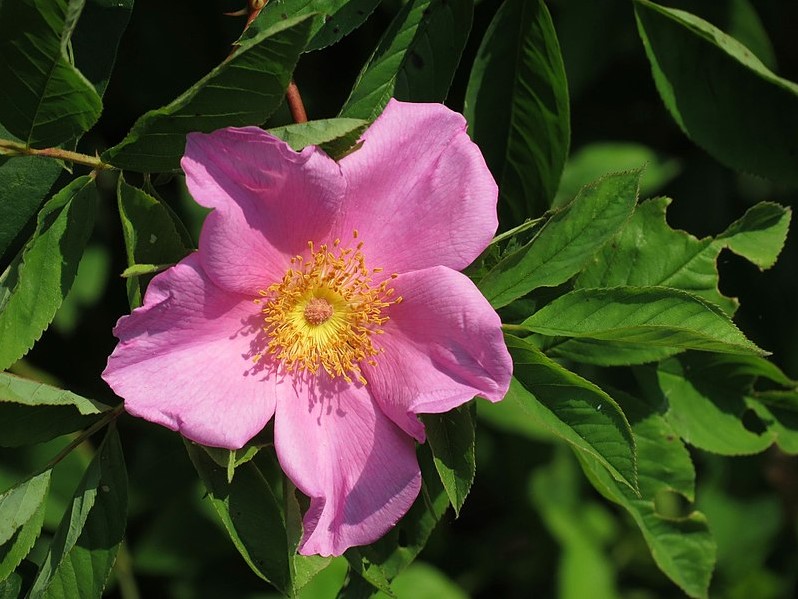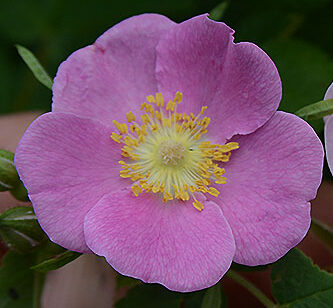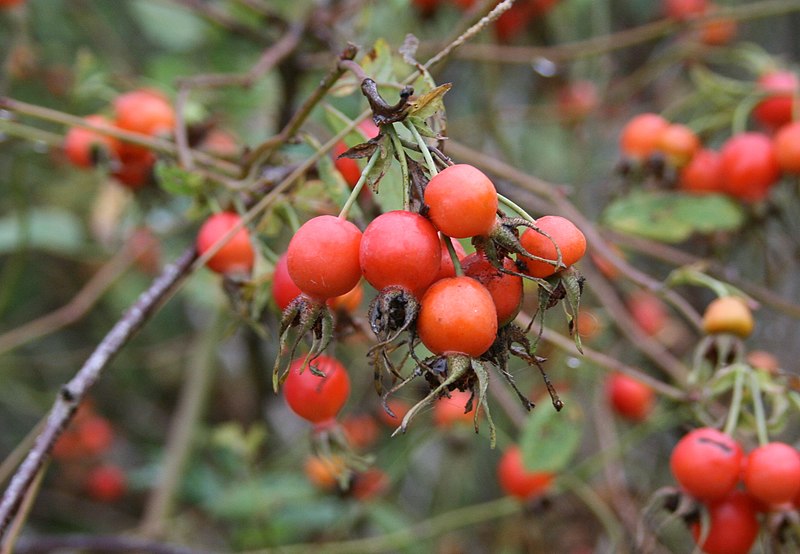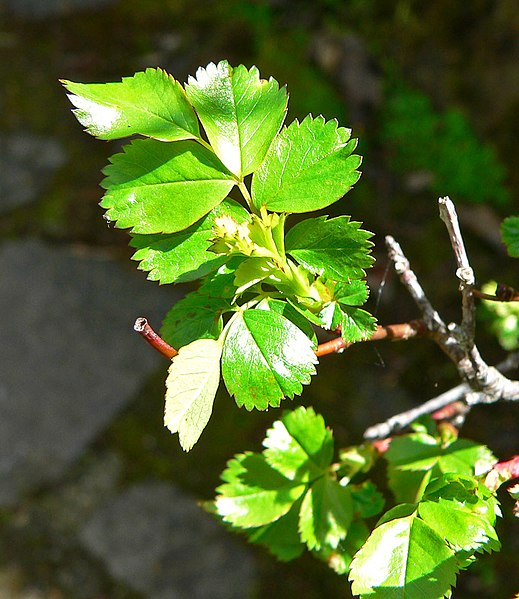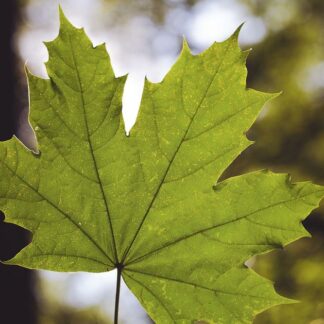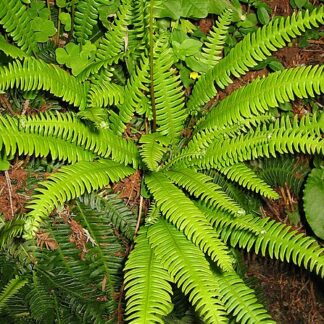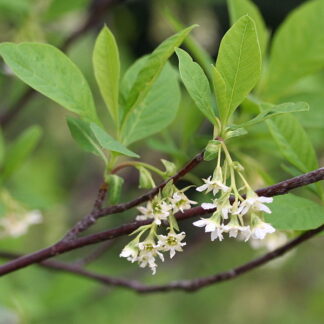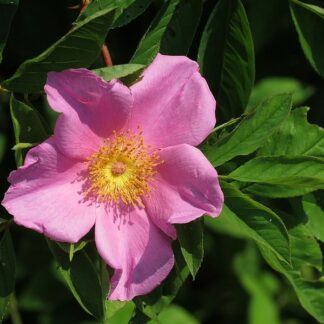Description
Sold in bundles of 10.
At a Glance: Medium-sized deciduous shrub. May form thickets.
Height: Up to 10′ tall, and 3′-6′ feet in width.
Stems: Dark red branches. Stem with few prickles. Prickles straight, with thick base, pair of thorns just at base of leaf.
Leaves: Leaves pinnately compound, with 5–9 hairless, glandless, toothed leaflets.
Flowers: Flowers in May/June. Pink flowers 1/2–3/4 in. across.
Fruits: Red rose hips form in clusters.
Appeal: Grows in riparian areas, along roadside ditches, in powerline right-of-ways, along fencerows and hedgerows, in wetland buffers and woodlands. Commonly used in wetland restorations and in native plant landscaping. Its thorny thickets and numerous, persistent hips provide shelter and food for birds and other small wildlife. Deer browse new stems and foliage.
Ethnobotany: Very few First Nations people used the hips of Peafruit rose as a food source, preferring those of Nootka Rose instead. Peafruit Rose was more commonly used as a medicine. Women used infusions of the bark after birth and leaves were placed in moccasins to prevent fungal infection. [Turniner, Ethnobotany. P.267]
| Sun/Shade Tolerance | Hydrology | Elevation Range |
|
full sun > 80%
mostly sunny 60%-80%
partial sun and shade 40%- 60%
|
wet
moist
|
low elevation
mid elevation
|
References:
Pojar, Jim, and Andy MacKinnon. Plants of the Pacific Northwest Coast: Washington, Oregon, British Columbia & Alaska. Revised ed. Redmond, Wash.: B.C. Ministry of Forests and Lone Pine Pub., 2004. Print.
“Sound Native Plants.” Sound Native Plants. Web. 31 Oct. 2014. www.soundnativeplants.com.

